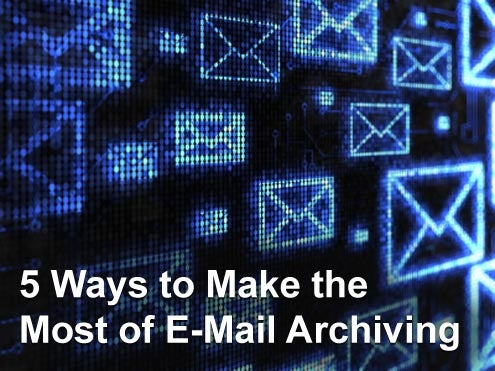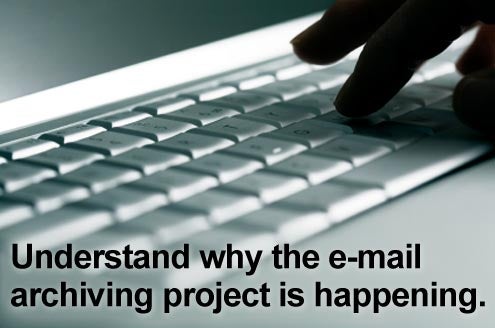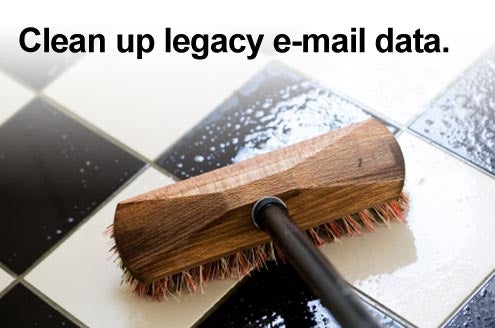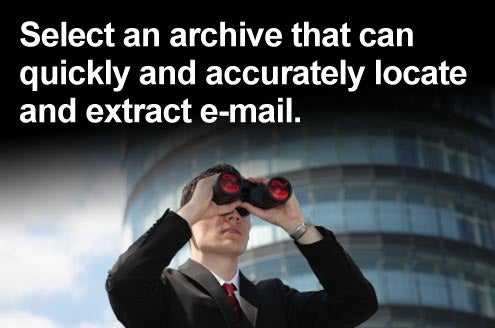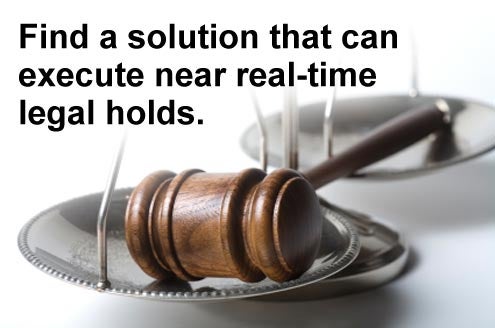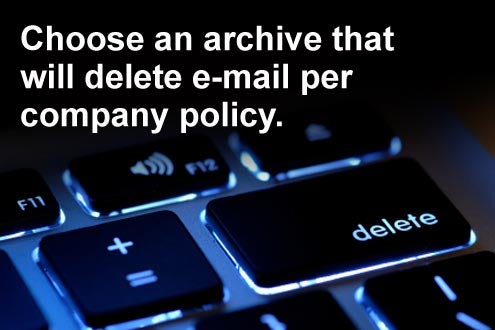A recent CompTIA survey revealed that e-discovery is expected to grow significantly in the coming months. Though respondents understand the importance of a comprehensive e-discovery strategy, many said they lack the expertise required to implement one.
As Recommind’s Craig Carpenter has told our Lora Bentley in the past, e-discovery requirements are just one of the things a good e-mail archiving/records management system will address. As your company begins an e-mail archiving purchase or project, you should also make sure the system you choose can do everything you need it to do (real-time legal holds, deleting e-mail as appropriate).
Be sure to also read Lora’s post, "How Do You Sell the Business on E-Mail Archiving?"
Click through to see Craig Carpenter’s 5 “must do’s” for every e-mail archiving project.
Too often enterprises will purchase an archive that is optimal for one purpose (e.g., Exchange performance) while less optimal for others that may be as or more important (e.g., e-discovery or records management). Without a firm understanding of why the project is needed, it is highly likely to fail on many important levels.
Going in and categorizing legacy data before putting it into an archive will make the access, management and remediation of such data much easier down the road.
Archives should never be a garbage dump from which e-mail-based information cannot easily be identified and extracted, as the enterprise will need to do this repeatedly for records management, GRC and-especially-e-discovery purposes.Customers are always surprised when their archive of choice makes finding and extracting information exceedingly difficult/impossible but they won’t be if they do sufficient diligence up-front.
Nothing will allow an e-mail archiving project to pay for itself faster than real-time legal holds and the ability to conduct early case assessments before e-mail collection. It will keep the company out of trouble and keep the expensive investigators and lawyers at bay.
Most e-mail archiving vendors build products that want to store information forever, while most enterprises want to delete information in a timely fashion. The enterprise must win this argument or its e-mail challenges will become much, much worse.


